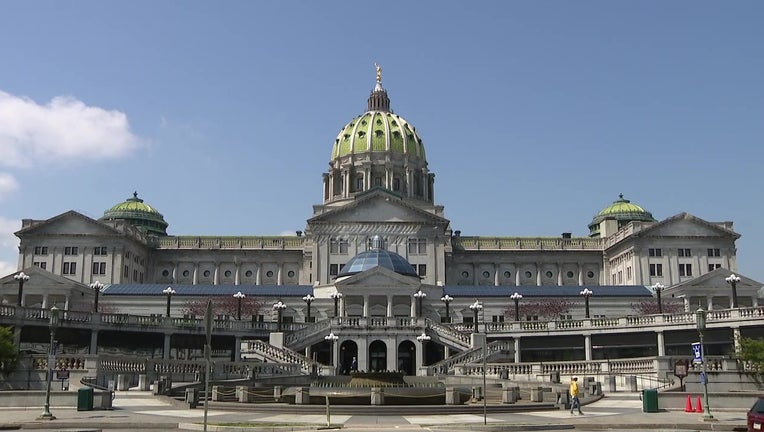Pennsylvania governor backs off $100M private schools program in budget stalemate

HARRISBURG, Pa. - Democratic Gov. Josh Shapiro on Wednesday backed off his insistence on money for a new private-school funding program, giving the Democratic-controlled House the opening to approve a new state spending plan after a days-long stalemate in Pennsylvania’s politically divided Legislature.
The chamber on Wednesday night approved the main bill in a $45 billion spending plan, 117-86, as the state government plowed through its fifth day without full spending authority.
The holdup was primarily over education spending — including Shapiro’s support for a new $100 million program to pay for tuition at private and religious schools that is a top priority for Republican lawmakers.
That first-ever "voucher" program had been a key element in a budget deal between Shapiro and Republicans who control the state Senate — and killing it opened the door to steps the Senate GOP could take to prevent the rest of the budget from taking effect.
The private-schools program had been opposed by Democrats, teachers unions and school boards, and Shapiro said in a statement that he would issue a line-item veto of the $100 million program should the House otherwise pass the Senate-approved spending plan.
In a statement, Shapiro said he was disappointed, but did not want to plunge the state into a "painful, protracted budget impasse."
Some Republicans expressed shock at the turn of events after the House returned to session Wednesday.
"If this was the plan in the end, (Shapiro) certainly will have ruined his credibility with us, which to this point had been pretty strong," said Sen. Chris Gebhard, R-Lebanon.
On the House floor, Rep. Seth Grove, R-York, accused Shapiro of "backtracking on a handshake deal."
The spending plan represents a 5% increase from last year’s approved budget, sending most of the new money to education, health care and social services.
The total spending figure would be several hundred million less than what Shapiro proposed in March and about $1.7 billion less than what the Democratic-controlled House passed in early June. It also carries significantly less for public schools than what House Democrats sought.
The plan does not increase sales or income taxes — the state’s two main sources of income — and requires about $1 billion from reserves to balance, leaving another $13 billion in reserve.
Shapiro’s original budget plan — and his deal with Senate Republicans — fell short of what many Democrats had wanted.
Shapiro secured a hefty increase of more than $600 million for public school instruction and operations, or about 7%, as well as millions to provide free school breakfasts and increase property tax and rent subsidies for the elderly and disabled.
The plan also includes another $150 million Republicans wanted for a separate tax-credit program that largely benefits private schools.
Still, spending plan did not including some of Shapiro's priorities and about $600 million in aid for Penn State, Temple University and the University of Pittsburgh remained in limbo, held up by a House Republican bloc.
Other items that Shapiro had wanted in the budget bill — and that Senate Republicans agreed to in exchange for the private schools program — might need separate legislation to allow that money to be spent, including money for school buildings and school mental health counselors.
That means that Senate Republicans have not necessarily lost all their leverage.
And Republicans haven’t scheduled the Senate to return to session until Sept. 18, giving them the ability to hold up the budget bill until then without the constitutionally required signature of the presiding officer.

